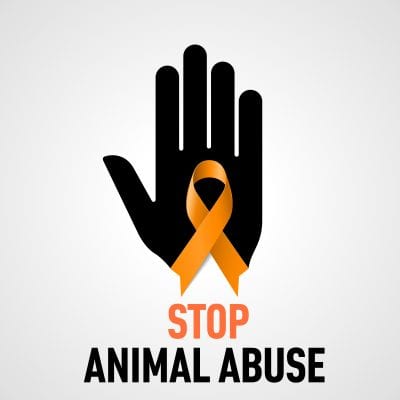
For most people, the very idea of animal cruelty is heartbreakingly incomprehensible, but it happens every day. According to the ASPCA (American Society for the Prevention of Cruelty to Animals) an animal is abused or beaten every ten seconds. However, animal cruelty is not always about physical abuse.
Learn to recognize the signs of animal cruelty:
Lack of adequate shelter: an animal that’s regularly left outside can quickly perish in the Arizona heat. Access to clean, fresh water and shelter from the sun is important, especially during the summer months. Better yet, the animal should be kept indoors where it’s cooler.
Untreated medical or skin conditions: if an animal is losing hair or has open sores, they need medical treatment. Withholding treatment for common ailments or disease like diabetes or thyroid issues is also a form of animal cruelty.
An animal that is kept crated all the time: this is a form of animal cruelty. Pets need regular exercise, attention and socialization, not to mention potty breaks. If these can’t or won’t be provided by the pet owner, they shouldn’t own a pet.
Negligent cruelty: Leaving an animal (or a child) alone in a locked car during summer months! Never, ever do this – not even for “just a few minutes”. Temperatures will quickly soar to life-threatening levels.
What to do if you suspect animal cruelty:
Remember, we need to speak for those who cannot speak for themselves. If you suspect or witness an act of animal cruelty, pick up the phone and call the local police, the Humane Society or other animal welfare organization. You can make a complaint (anonymously, if necessary) that can help ensure that animals in jeopardy are rescued and receive the care they need. If you’re concerned about the immediate health or safety of the animal, be sure to tell the officer.
Keep a record of the incident/s, the date of your complaint, the organization you contacted and the name of the person you talked with as well as their response to the situation you’ve described. It may be helpful if authorities decide to prosecute the suspected abuser.

